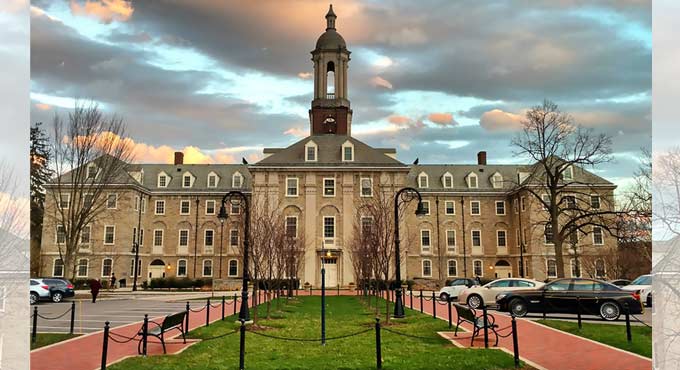Penn State University: $2.5M grant awarded to flip the switch on lung cancer drug resistance
Penn State engineering researchers, in collaboration with University of Massachusetts investigators, recently received a five-year, $2.5 million grant from the National Cancer Institute to build, model and failure-test customizable dual-switch gene drives that convert cancer cells into a “trojan horse” to kill other cancer cells that have become drug resistant.
“If it sounds crazy, that’s because it is,” said Justin Pritchard, Dorothy Foehr Huck and J. Lloyd Huck Early Career Entrepreneurial Assistant Professor and assistant professor of biomedical engineering at Penn State, who is leading the study. “It’s a high-risk, high-reward study. We plan to engineer self-destructive cancer cells that can kill neighboring drug-resistant cancer cells.”
Co-investigator Michael Lee, associate professor of systems biology at the University of Massachusetts Medical School, will contribute measurements of cell death in experimental systems that will allow the Pritchard lab to build mathematical models and experiments in human cancer cell lines. This will create a “gene-drive” switch that works to limit resistance to existing cancer therapies.
The switch design works solely for certain subsets of cancers, specifically non-small-cell lung cancer cells with an EGFR gene mutation, where drugs that target mutated proteins in the cancer cell are already on the market.
“We are taking a careful approach to design and testing,” Pritchard said. “We will look specifically for failures within the switch, and analyze what we find, sort of like when civil engineers analyze a building or bridge failure after the fact. Failures help us understand where our ideas about cancer therapy are incomplete, and what we can do to fix them and increase our knowledge.”
After initial tests on cancer cell lines, the researchers will test the dual-switch gene drives on human organoids, provided by the University of Massachusetts Medical School, which are patient-derived cancer cells that more closely mimic real tumors.
Co-investigator Shelly Peyton, Armstrong Professional Development Professor at University of Massachusetts Amherst and expert in tissue engineering, will lead the design of microenvironments to determine how the gene therapy functions under different conditions. Peyton’s team will study how certain switches or parameters fail, or why they function well in some environments but not others.
“The research here is trying to take the challenge of cancer treatment and flip it on its head,” said Scott Leighow, fifth-year doctoral student in biomedical engineering, who gathered the preliminary data that were key to securing the grant. “If we can do that, we’ll have a therapy that can handle resistant forms of cancer a lot better than what’s currently in our arsenal.”
If the study is successful, the researchers will test their treatments on animal models to show proof-of-concept, Leighow said. Far in the future, the technology has the potential to offer a cellular gene therapy that might assist cancer patients who are not candidates for surgery.
The grant is part of a new consortia created by the NCI to promote collaborative approaches to synthetic biology for cancer applications.

